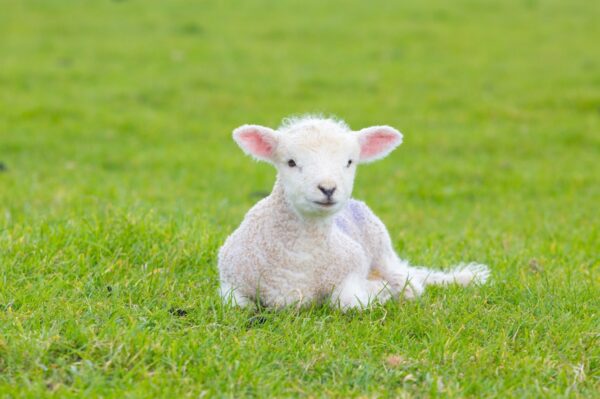The demand for lamb meat has grown steadily worldwide, providing millions of people with a valuable source of protein. However, along with the increasing popularity of lamb comes the responsibility of ensuring that animals are treated with care and respect throughout their lives. Humane treatment in the lamb meat industry is not only an ethical imperative but also essential for sustainability, consumer trust, and the quality of the meat itself.
Superior Farms in Denver explores why humane treatment is crucial in the lamb industry, the practices that promote animal welfare, and the benefits it brings to farmers, consumers, and the environment.
Why Humane Treatment Matters
- Ethical Responsibility: One of the most compelling reasons for ensuring the humane treatment of lambs is the ethical responsibility to prevent animal suffering. Animals raised for food production are sentient beings capable of feeling pain and distress, making it crucial that their welfare is respected throughout their entire lifecycle. Ethical farming practices are built on the principle that animals should live in comfortable, healthy conditions with minimal stress.
- Consumer Expectations and Demand: More consumers are prioritizing animal welfare in their purchasing decisions. Modern consumers want to support industries and companies that align with their ethical values, leading to an increased demand for ethically produced meat. By ensuring that lambs are treated humanely, farms can appeal to a larger segment of the market that values transparency, sustainability, and ethical treatment of animals.
- Sustainability and Environmental Impact: Humane farming practices are often aligned with sustainable agriculture. Reducing stress and ensuring healthy living conditions for lambs helps promote better environmental practices, such as rotational grazing, organic feeding, and reduced reliance on antibiotics and hormones. These methods, in turn, benefit the ecosystem, soil health, and biodiversity. Furthermore, sustainable farming practices that prioritize animal welfare can reduce the industry’s overall carbon footprint.
- Quality of Meat: Stress and mistreatment of animals can have direct effects on meat quality. Lambs raised in a high-stress environment may produce tougher, lower-quality meat due to elevated levels of stress hormones like cortisol. Humane farming practices that prioritize the well-being of animals result in healthier lambs, which translates into better-quality meat for consumers. By keeping the animals calm and ensuring that their health is prioritized, farms can produce superior cuts of meat that are tender, flavorful, and more desirable to the market.
Practices for Ensuring Humane Treatment
- Proper Housing and Space: Lambs need adequate space to roam and graze, as they are naturally social animals that thrive in open pastures. Overcrowding is not only inhumane but also increases the risk of disease and injury. Humane farms provide lambs with access to clean water, healthy food, and plenty of space to engage in natural behaviors such as grazing, socializing, and resting.
- Stress Reduction: The reduction of stress throughout a lamb’s life is critical for their well-being. This includes managing their transportation to slaughter facilities and minimizing unnecessary handling or confinement. Many farms are adopting low-stress handling techniques, which include reducing loud noises, handling lambs gently, and keeping them in familiar groups to prevent distress. Additionally, some farms employ professional animal behaviorists to ensure that best practices are followed for minimizing stress.
- Humane Slaughter: A key aspect of humane treatment is ensuring that animals are slaughtered in a manner that minimizes suffering. Humane slaughter practices, regulated by national laws and international guidelines, ensure that lambs are treated with dignity and respect throughout their entire lives.
- Health and Nutrition: Good nutrition and health care are essential for humane farming. Lambs should be fed high-quality, nutritious diets that promote their growth and well-being without relying on growth hormones or excessive antibiotics. Routine veterinary care and health monitoring are critical for preventing disease outbreaks and ensuring that lambs stay healthy and comfortable.
- Certification Programs: Many farms are now participating in certification programs that promote animal welfare. Certifications such as Animal Welfare Approved, Certified Humane, and Global Animal Partnership require farms to adhere to stringent animal welfare standards. These programs ensure that consumers can trust that the lamb meat they purchase comes from farms that prioritize humane treatment.
The Benefits of Humane Treatment for Farmers
- Market Access and Premium Pricing: By treating animals humanely, farmers can access premium markets that pay higher prices for ethically produced meat. Certification programs and direct-to-consumer sales allow farmers to differentiate their products from those of conventional farms, catering to a growing consumer base that values animal welfare.
- Improved Farm Efficiency: Humane treatment of animals often goes hand-in-hand with better farm efficiency. Healthier animals that are raised in low-stress environments are less prone to disease and injury, leading to lower veterinary costs and fewer losses. Additionally, sustainable farming practices, such as rotational grazing, help maintain the health of the land, leading to long-term productivity and profitability.
- Positive Reputation
:mFarmers who prioritize humane treatment build positive relationships with their customers and community. A farm that upholds ethical standards is likely to gain a loyal customer base that values their commitment to animal welfare. In today’s connected world, a farm’s reputation for humane treatment can spread quickly, bringing in new customers and opening doors to partnerships with retailers that prioritize ethically sourced products.
The humane treatment of lambs in the meat industry is a critical aspect of ethical farming, consumer trust, and sustainable agriculture. By focusing on the well-being of the animals, farmers not only fulfill their moral obligations but also produce higher-quality meat, reduce their environmental impact, and increase their market competitiveness.
Consumers are becoming increasingly aware of the conditions under which their food is produced, and the demand for humanely raised lamb will continue to grow. For the industry as a whole, prioritizing animal welfare is a path to long-term sustainability and success. By embracing humane practices, the lamb meat industry can build a future that respects both animals and the land, creating a more ethical and responsible food system for all.

